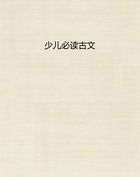东晋时有名学者叫王嘉,
传世之作叫《拾遗记》。
书中讲有个书生叫任末,
非常用功肯学习。
可惜没固定的老师可请教,
只好四处去拜师。
小任末当时只有十四岁,
肩挑着行李和书籍,
不怕路途多险阻,
小小年纪有志气。
他常说:“人生如果不学习,
干事业怎会有成绩!”
后来任末长成人,
教书谋生挣衣食。
他一边教导学生把书读,
自己还坚持苦学习。
他选取风景优美处,
搭起一间小茅屋,
平时生活多艰难,
连纸笔灯油也买不起,
他便借月光星光来读书,
拿荆木削尖当作笔。
他读书还有个好习惯,
读到那精彩句段便停止,
顺手抄在衣襟上,
以便温习能牢记。
学生们被他的精神所感动,
就经常为老师做新衣。
任末晚年临终时,
给学生留下谆谆告诫深道理:
好学者虽死犹未死,
不学者虽生犹死尸。
到后来“行尸走肉”这成语,
常把庸碌无能之辈比,
以及那精神贫乏无寄托,
或反动愚蠢之辈也可比。
A Walking Corpse
In the Eastern Jin Dynasty(317—420A。D。)there was a scholar named Wang Jia,who wrote a masterpiece entitled“Anecdotes”。In his book he told that there was a student named Ren Mo,who studied very hard。It was a pity that he hadn't got a constant teacher,so he had to travel about to find one。At that time he was only 14 years old。He carried his luggage and books with a shouldering-pole。He didn't fear the long hard journey,for he had high goals。He would say that if one didn't study,how could he manage to succeed in his work。
Later when Ren Mo grew up,he earned a living by teaching。He worked hard to teach himself,while he taught his students。He chose a beautiful place,where he set up an awning。He was constantly hard up in his life,he could not afford pens and paper and lamp oil,so he had to read and write in the moonlight,and he sharpened a wattle from a tree to use as a pen。
He had a good habit in reading。When he came across interesting sentences or paragraphs,he would jot them down on the lining of his coat,so as to review them afterwards。The students were so moved by his spirit,that they frequently tailored new clothes for their teacher。Before Ren Mo died in his advanced age,he gave his students his sworn words。A well-educated man died an immortal death Whereas an ill-educated man was like a walking corpse。
Later on“A Walking Corpse”became an idiom,referring to those good-for-nothing ones,and also it can be used to scold some reactionary pinheads。














